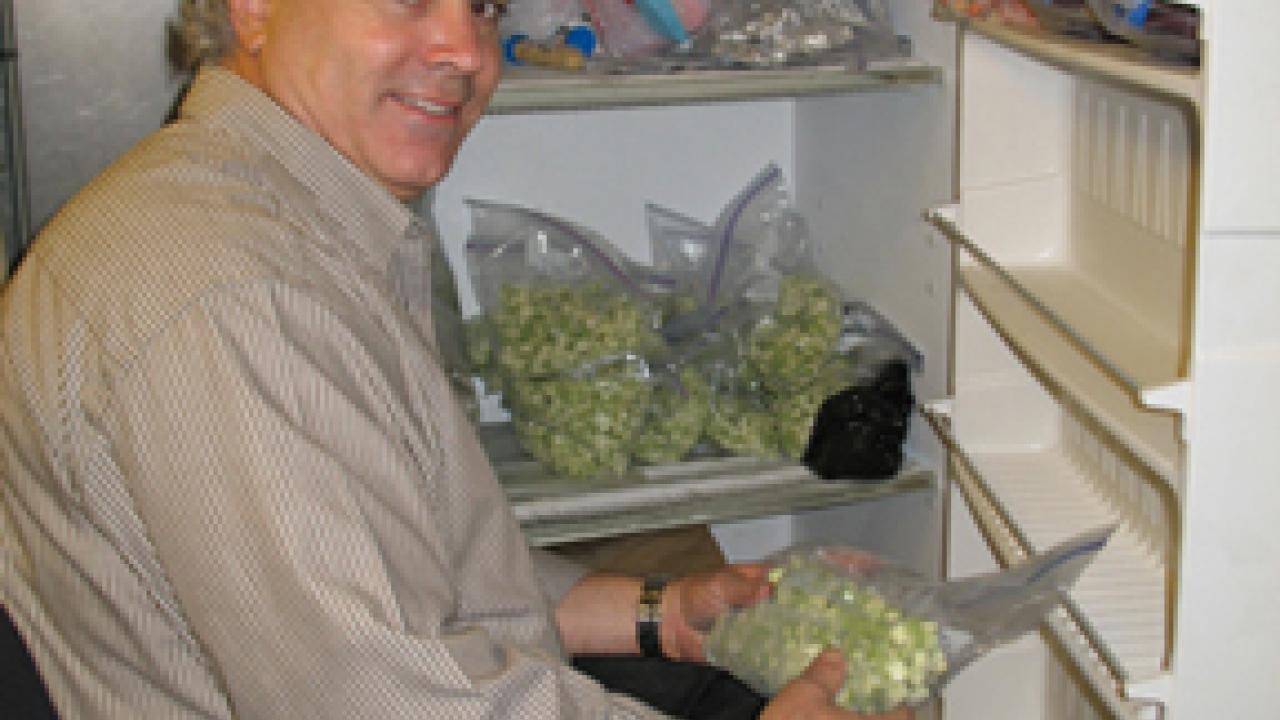Some of them hold sea squirts and bacterial colonies and plastic bags full of apple tissue. Others hold tuna sandwiches, soft drinks and frozen meals.
They are freestanding refrigerators and freezers, hundreds of them all across the Davis campus, in research labs and break rooms.
And a good many of them suck up more electricity than newer models. So the university administration is launching a rebate program, just like those run by SMUD and PG&E, to encourage research and administrative units to trade in their old refrigerators and freezers for newer, energy-efficient models.
"Here's an opportunity for campus citizens to help shrink our carbon footprint, reduce our energy bill and make our campus more sustainable," said Jeff Lefkoff of the Office of Resource Management and Planning.
"And, to boot, you get a new, more reliable refrigerator or freezer."
Appliances common in labs
Barbara Horwitz, interim provost and executive vice chancellor, came up with the idea and approved the use of campus funds for the rebate program that will run through Dec. 31, 2008. There is no estimate on the number of refrigerators and freezers to be included in the program, partly because there is no firm data on the number of such appliances that may qualify and because the rebate program is voluntary.
Lefkoff said the university surveyed three lab buildings, and extrapolated a "working estimate" of a total of 600 freestanding refrigerators and freezers in all major lab buildings.
The administration has set aside a minimum of $200,000 for the rebates. "We're going to earn this back in reduced electricity costs in four to five years," Lefkoff said.
The rebate program applies to replacement of freestanding refrigerators and freezers manufactured before 1990, and in use on the Davis campus. Refrigerators in student housing do not qualify.
The campus will pay rebates of 50 percent following the purchase of new Energy Star-rated refrigerators and freezers, up to $400 per unit (i.e., a purchase of $800 or more would bring a $400 rebate). The campus also will pay the full cost of the proper disposal of the old refrigerators and freezers.
A $200 payment will be made for every freestanding refrigerator and freezer, manufactured before 1990, that is taken out of service on the Davis campus -- say, if an academic or administrative unit consolidates the contents of two refrigerators or freezers. Again, the campus will pay the full cost of disposal.
Energy deficit a factor
For each refrigerator and freezer that is replaced or discarded, the university estimates an annual savings of 1,300 kilowatt hours of electricity. Every little bit helps, said Maurice "Mo" Hollman, associate vice chancellor of Facilities Management, in urging academic and administrative units to consider the rebate program.
Horwitz, Hollman and other administrators are doing all they can to address a $10 million shortfall for energy expenses, with the deficit largely attributed to rising prices and the difficulty in heating and cooling the older buildings that comprise much of the campus. Not to mention that Davis' high summer temperatures already push the campus's cooling expenses beyond the norm.
Other steps that UC Davis is taking to cut electricity use include new temperature control systems in individual buildings, and improvements to the centralized chilling system.
Reduced electricity use also translates to reduced carbon emissions -- a drop of an estimated 1,000 pounds annually for every older refrigerator and freezer taken out of service.
Hollman described the rebate program as one part of an overall effort "to raise campus consciousness to the need for conservation awareness in everything we do."
"To be successful," he added, "we will need everyone's participation -- faculty, staff and students -- in myriad behavioral changes, each in themselves quite small but resulting in a totality of effort that will have dramatic results.
"Turning out the lights and shutting off the computers, wearing a sweater instead of increasing the heat, taking a bus, carpooling or riding a bike, and reuse and recycling are individual behavioral decisions and personal practices that we must encourage and foster."
Program details are available online: ormp.ucdavis.edu/fridge-freezer.
Media Resources
Clifton B. Parker, Dateline, (530) 752-1932, cparker@ucdavis.edu
